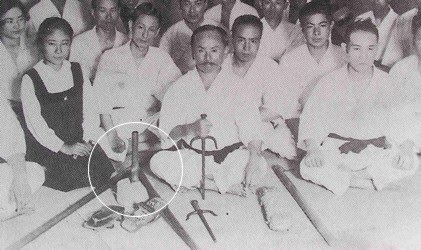Here is a quote from Chojun Miyagi, founder of Goju-Ryu back in 1936
I'm familiar with the general content and some direct quotes of this and other summits around that time but have never seen a transcript as full as this. It clearly shows the Okinawan thinking of the time and illustrates some important points (which you highlighted).
The main thing the excerpt details, IMO, is the discussion of 2 sets of kata: The traditional ones and newly created ones. This line of thought resulted in the schism of "two karates," The traditional ("real") kata/karate, and a version "suitable for students of primary, high schools..." the results of which are still felt today and have ultimately been responsible of much of the lively karate debate on this forum.
While a whole new set of kata did not come out of this meeting, perhaps due to the onset of WWII (although the earlier Pinan/Heian forms seem to fit this desire - I'm unsure why they were not addressed by Miyagi in this regard), the goal of providing a "simpler and gentler" version was accomplished by
modifying the existing kata (though this process began in the 1920's in Japan). This was the version largely exported to the West. Many, even today, see this modified version as being "karate," being unaware that the less modified Okinawan style of karate still exists.
I don't think the Okinawans would have taken it upon themselves to change, if not for the pressure exerted by Japan. In fact, they had resisted adopting the gi and ranking system, terminology (karate was still mostly referred to as "toude/toudi" in the Okinawan dialect) and changing the names of their kata. Remember, most of those attending the 1936 meeting grew up while their homeland was still technically the independent Ryuuku Kingdom. Also, their training began while karate was still taught semi-secretly, so they were not keen to reveal everything to the Japanese or general public. But the rising nationalism in Japan and the desire to maintain and spread their native art led Okinawan karate to play along with the Japanese way to some extent.
Must have been an exciting time.

